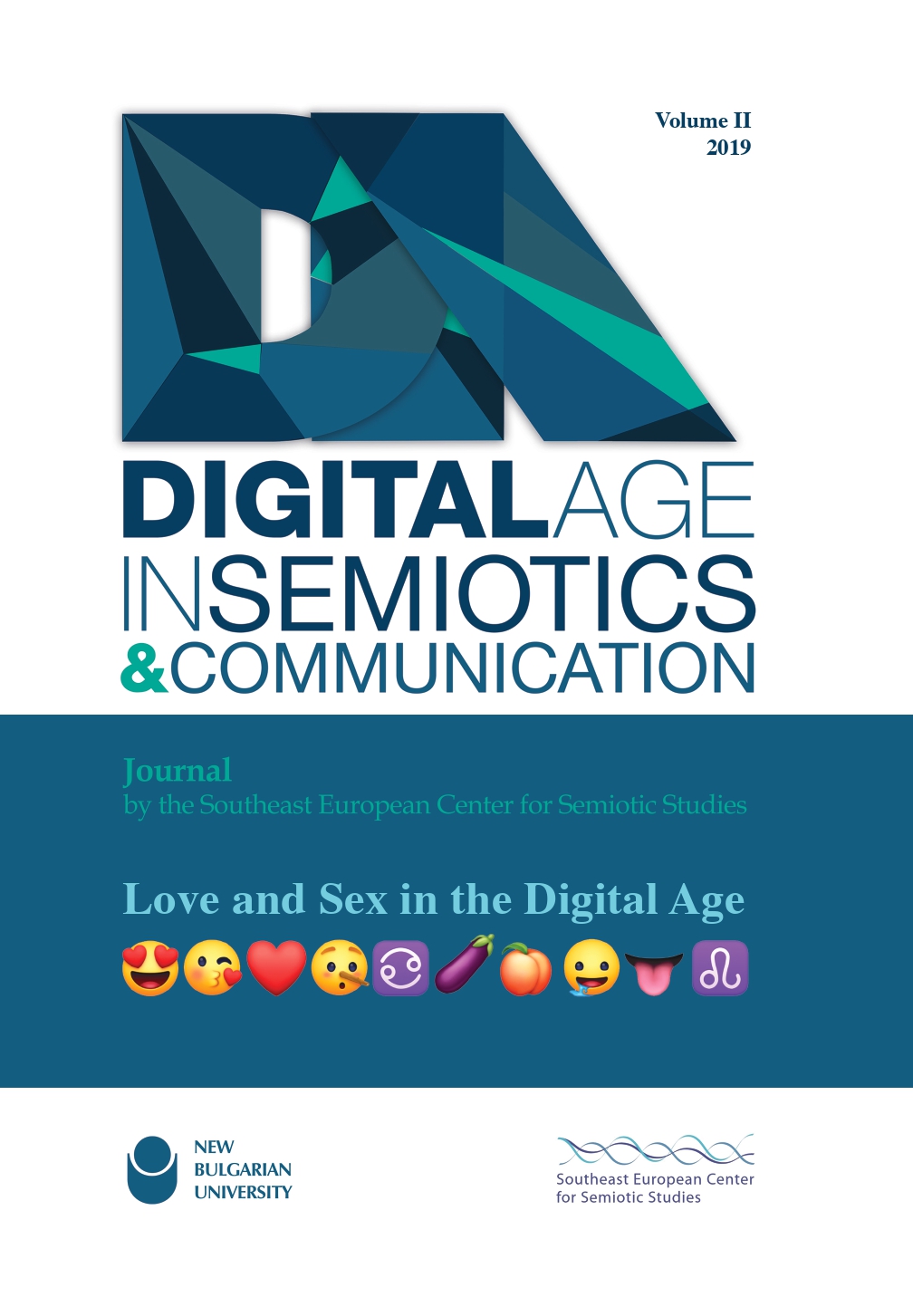From sexual community to exclusive sex: semiotic translation on gay chat and dating applications
From sexual community to exclusive sex: semiotic translation on gay chat and dating applications
Author(s): Francesco PilusoSubject(s): Philosophy, Social Sciences, Education, Semiology, Higher Education
Published by: Нов български университет
Keywords: Gay apps; Queer community; Privatization; Self-exploitation; Model user
Summary/Abstract: “Gay, bi, trans, and queer” chat and dating apps, since explicitly addressed to sexual categories, are inevitably permeated by “sex”, even though this word rarely appears in the presentations of these applications. This omission is quite significant, since it establishes a strict code of interpretation and use for many of these apps, which usually promote a one-to-one heteronormative mode of interaction, in which sexuality, rather than a social bond, is intensively privatized and exclusive. The architecture of these apps deceptively seems to promote both the identity of the single user and the formation of communities through the possibility (and the necessity) of filling a series of categories. Actually, these categories and provided data, related to a mechanism of filters, combine to orient and standardize users’ choices and, consequently, the sexual and social value of the users themselves. These apps, through the (self)exploitation of their users, establish a gentrification process of their virtual spaces to increase their rental value as platforms. In this circular mechanism, a recursive hierarchy between a platform and its users is traceable, as well as amongst the users themselves.: racist, anti-feminine, transphobic and sierophobic behaviors are dissimulated and legitimated as mere personal tastes. Therefore, while performances of white masculinity are awarded at the prize of frustrating normalization, “trans” and broadly “queer” subjectivities, widely sponsored by the queerwashed pages of these apps, are in fact excluded. Through a semiotic analysis of Grindr and PlanetRomeo, two of the bigger gay apps, the aim of this work is to highlight the semiotic processes of translation of sexual minorities’ collective instances into commodified profiles. A mechanism that reflects a broader heteronormative and neoliberal process of re-appropriation and assimilation of the difference.
Journal: Digital Age in Semiotics & Communication
- Issue Year: II/2019
- Issue No: 1
- Page Range: 102-120
- Page Count: 19
- Language: English

